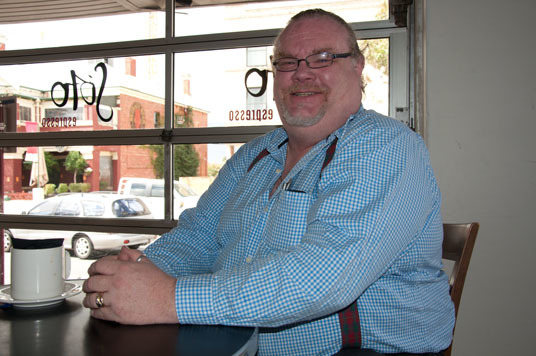 When Graham Douglas-Meyer witnessed a horrific car crash in 2001, he acted immediately, working to pull the victim from the wreckage. Incurring lacerations and leaving the scene drenched in the blood of another man, Graham’s act of heroism was to change his life profoundly. As someone who partook in regular gay sex, frequent HIV tests were always on Graham’s agenda, the results following the car crash were best described as life changing –
When Graham Douglas-Meyer witnessed a horrific car crash in 2001, he acted immediately, working to pull the victim from the wreckage. Incurring lacerations and leaving the scene drenched in the blood of another man, Graham’s act of heroism was to change his life profoundly. As someone who partook in regular gay sex, frequent HIV tests were always on Graham’s agenda, the results following the car crash were best described as life changing –
‘I got home to find a note in my letterbox from the doctor that said “please contact me urgently concerning blood test result”. So I phoned him up and got my diagnosis over the telephone, which was so wrong. This guy had never dealt with HIV before whatsoever, it still happens today. I was rocked; I almost fell through the floor.’
Graham’s life immediately after the diagnosis took a downwards spiral. Working as a high school teacher, a refusal to disclose his status to employers left him unemployed – I was bought before the education departments doctor and the demand was – “either tell me what you’ve got or I can’t help you at all” – when I informed them that I couldn’t discuss what the condition was, they said “well your only avenue now is to resign”, I lost my job in that one day. People suspected simply because of the fact I was gay’.
Unemployment propelled Graham into disclosing his status to family and friends, a situation way beyond his comfort zone. ‘My sister in law decided to pick up the phone and call mum and dad down immediately, the decision was taken away from me. I was forced to tell my parents’.
After being forcibly ‘outed’- things got better for Graham, who has worked as an ambassador for HIV+ rights since. Graham has now been loud and proud about his status for over a decade, and has advice for positive people who might be struggling.
1. Don’t let yourself be stigmatised:
‘Discrimination is something that comes from the outside, stigma affects you on the inside, when someone makes a remark and you’re not comfortable within yourself; it hangs around your neck because you haven’t come to terms with it. The more you are out there about it, the less chance you will be stuck with stigma – you’ll actually start standing up for yourself.’
2. HIV can’t kill you:
HIV isn’t the terminal disease it once was, in Australia people are living with HIV – ‘people are growing old with HIV. HIV can’t kill you, what it can do is lower your immune system so other things can kill you’.
3. Never be ashamed:
‘Once my parents knew, I didn’t give a damn who knew. I decided at that point in time that I was going to do something about it. I wasn’t just going to let that be held against me or be a potential threat against me. So I started being very public about it, don’t whatever you do, let people close to you say “Don’t tell anybody”’.
4. Exercise support networks:
‘I’d already organised to go see the WA AIDS council no matter what the result would be.’ – This organisation offers services ranging from counselling services to financial assistance. You can visit www.waaids.com .
5. Come out:
When it comes to disclosing your status to loved ones, Graham emphasised that the experience is a very different and personal journey for everyone. What he also emphasised is that life can improve dramatically once you’re open about your status –
‘At that point in time it was illegal for me not to disclose if I had any sort of sexual contact. When my current partner first asked me out on a date, I told him my status and he said – so? I got to the point where I didn’t care less. If people didn’t want anything to do with me because I was HIV-positive, well that was their problem.‘
Graham is now happily married and in the process of writing an auto-biography. If you ask Graham about living with HIV now, optimism is the underlying notion – ‘HIV is behind me, it’s in the back of my mind’.
Nadine Walker





